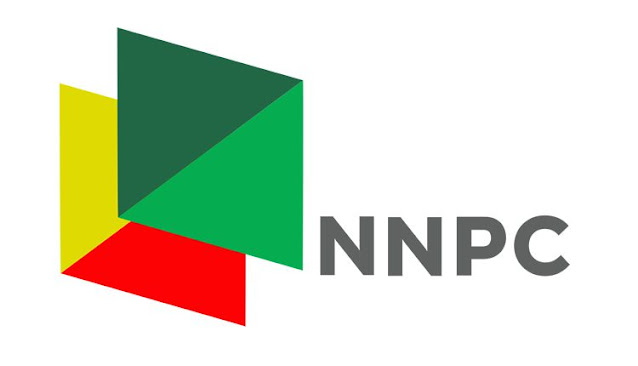ABUJA, Nigeria – August 25, 2025 – The Nigerian National Petroleum Company Limited (NNPC Ltd.) and major upstream gas producers have signed transformative Gas Supply Agreements (GSAs) with Nigeria Liquefied Natural Gas Limited (NLNG) to deliver 1.29 billion standard cubic feet of gas per day (bscf/d) as feedstock for NLNG’s operations. The 20-year contracts, formalized on Friday, August 22, 2025, at NNPC Towers in Abuja, mark a pivotal moment in Nigeria’s energy transition and economic development strategy. With extension options included, the agreements involve key industry players such as Amni International Petroleum Development Company Limited, Sunlink Energies and Resources Limited, First Exploration & Petroleum Development Company Limited, Shell Nigeria Exploration and Production Company (SNEPCo), NNPC Gas Marketing Limited, NNPC E&P Limited, Shell Nigeria Gas Solutions Limited, Oando Group, and Aradel Holdings. This report provides an in-depth analysis of the GSAs, their implications for Nigeria’s gas sector, the role of regulatory reforms, and the broader impact on the nation’s energy security and economic growth.
A Milestone in Nigeria’s Gas Sector
The signing of the Gas Supply Agreements (GSAs) on August 22, 2025, represents a landmark achievement for Nigeria’s gas industry, signaling a renewed commitment to harnessing the country’s vast natural gas reserves, estimated at 209 trillion cubic feet, to drive economic growth and energy security. The agreements, which secure a daily supply of 1.29 billion standard cubic feet of gas to NLNG’s Bonny Island facility, are designed to ensure a stable feedstock for liquefied natural gas (LNG) production, bolstering Nigeria’s position in the global energy market.
The contracts, spanning 20 years with options for extension, involve a consortium of major upstream gas producers and NNPC Ltd. subsidiaries, reflecting a collaborative approach to addressing Nigeria’s energy challenges. The signatories include established players like Shell Nigeria Exploration and Production Company (SNEPCo) and Oando Group, as well as indigenous firms such as Amni International, Sunlink Energies, First Exploration, and Aradel Holdings. NNPC Gas Marketing Limited and NNPC E&P Limited, both subsidiaries of NNPC Ltd., underscore the state-owned company’s central role in the agreements.
Engr. Bashir Bayo Ojulari, Group Chief Executive Officer of NNPC Ltd., hailed the GSAs as a “giant leap” toward unlocking sustainable gas supply and creating value across the energy value chain. Speaking at the signing ceremony, Ojulari emphasized the agreements’ alignment with Nigeria’s broader energy transition goals, stating, “These GSAs have opened new opportunities for the expansion of our industry both domestically and globally. They are anchored on collaboration, shared opportunities, and economies of scale.” He highlighted the importance of risk-sharing and collective rewards in achieving President Bola Ahmed Tinubu’s Decade of Gas vision, which aims to position gas as a cornerstone of Nigeria’s economic development by 2030.
The agreements come at a critical time for Nigeria, which is grappling with economic challenges, including a headline inflation rate of 21.88% in July 2025, a 29.72% year-on-year increase in diesel prices to N1,789.45 per litre, and a naira depreciation of 41.4% in 2024, according to the National Bureau of Statistics (NBS). The GSAs are expected to stimulate investment, create jobs, and enhance energy security, providing a much-needed boost to Nigeria’s economy.
The Role of Regulatory Reforms
The GSAs are a direct outcome of recent reforms in Nigeria’s gas sector, driven by President Tinubu’s administration. Ojulari credited the president’s “unprecedented support” for creating a business environment conducive to investment, particularly through Executive Orders aimed at promoting gas development and improving the ease of doing business. These orders, signed in 2024, include measures to streamline regulatory processes, reduce bureaucratic bottlenecks, and provide fiscal incentives for gas projects.
The Petroleum Industry Act (PIA) of 2021 laid the foundation for these reforms, restructuring Nigeria’s oil and gas sector to enhance transparency, attract investment, and promote domestic gas utilization. The PIA established a clear fiscal framework for gas projects, separating upstream, midstream, and downstream operations to encourage specialization and efficiency. It also introduced incentives such as tax holidays and reduced royalties for gas exploration and production, making Nigeria a more attractive destination for investors.
The Decade of Gas initiative, launched by the Tinubu administration, builds on the PIA by prioritizing gas as a transition fuel to support Nigeria’s shift toward cleaner energy sources. The initiative aims to increase domestic gas consumption, expand LNG exports, and develop gas-based industries such as fertilizers and petrochemicals. The GSAs align with these goals by ensuring a reliable supply of gas to NLNG, which operates six LNG trains with a combined capacity of 22 million tonnes per annum (mtpa) at its Bonny Island facility.
Philip Mshelbila, Managing Director of NLNG, described the agreements as a “watershed moment” for Nigeria’s gas sector. “These agreements restore confidence in feed gas supply to our Bonny Island facility and strengthen Nigeria’s position as a reliable player on the world stage,” Mshelbila said. He noted that the GSAs would enhance local output, support NLNG’s growth ambitions, and contribute to Nigeria’s industrialization goals. NLNG, an incorporated joint venture with NNPC Ltd. holding a 49% stake, Shell Gas at 25.6%, TotalEnergies at 15%, and Eni International at 10.4%, is a critical player in Nigeria’s LNG exports, accounting for over 7% of global LNG supply.
Economic and Energy Security Implications
The GSAs have far-reaching implications for Nigeria’s economy and energy security. Nigeria, Africa’s largest oil producer, has historically underutilized its gas resources, with significant volumes flared or exported rather than harnessed for domestic use. The agreements address this by securing a steady supply of gas to NLNG, which will boost LNG production for export markets while supporting domestic gas needs through associated infrastructure projects.
Economically, the GSAs are expected to attract significant investment into the gas sector, creating jobs and stimulating growth in related industries. The construction and operation of gas infrastructure, including pipelines and processing facilities, will generate employment opportunities, particularly for skilled workers in engineering and technical fields. The agreements also enhance Nigeria’s foreign exchange earnings through increased LNG exports, which are critical given the naira’s depreciation and the country’s reliance on oil and gas revenues.
Energy security is a key focus of the GSAs, as Nigeria seeks to address chronic power shortages that have hindered industrial growth. The country’s electricity generation capacity remains below 5,000 megawatts for a population of over 220 million, with frequent grid collapses exacerbating the challenge. By ensuring a reliable gas supply to NLNG and associated domestic projects, the GSAs will support gas-to-power initiatives, such as the Ajaokuta-Kaduna-Kano (AKK) pipeline, which aims to deliver gas to power plants and industries in northern Nigeria.
The agreements also position Nigeria to capitalize on the global energy transition. As countries shift toward cleaner energy sources, LNG is seen as a bridge fuel due to its lower carbon emissions compared to coal and oil. Nigeria’s ability to supply LNG to markets in Europe, Asia, and beyond strengthens its role in the global energy market, particularly as demand grows following disruptions caused by geopolitical tensions, such as the Russia-Ukraine conflict.
The Role of Collaboration and Industry Players
The GSAs reflect a collaborative approach involving both international and indigenous companies, highlighting the importance of partnerships in achieving Nigeria’s gas ambitions. International players like Shell Nigeria Exploration and Production Company (SNEPCo) and TotalEnergies bring technical expertise and global market access, while indigenous firms like Amni International, Sunlink Energies, First Exploration, Oando Group, and Aradel Holdings demonstrate the growing capacity of Nigerian companies in the upstream gas sector.
Ojulari emphasized the role of collaboration, stating, “Achieving the President’s Decade of Gas vision requires us to share both the risks and the rewards.” The inclusion of NNPC Gas Marketing Limited and NNPC E&P Limited underscores NNPC Ltd.’s strategic role in coordinating gas supply and ensuring alignment with national objectives. Shell Nigeria Gas Solutions Limited, a subsidiary focused on domestic gas distribution, further strengthens the agreements’ impact on local energy needs.
The participation of indigenous companies is particularly significant, as it reflects Nigeria’s push for local content development under the PIA. The act mandates that Nigerian firms play a greater role in oil and gas projects, fostering capacity building and economic empowerment. Companies like Oando and Aradel, which have grown from small players to major operators, exemplify this trend, contributing to job creation and technology transfer.
Challenges and Opportunities
While the GSAs mark a significant step forward, they also face challenges that must be addressed to maximize their impact. Infrastructure bottlenecks, such as inadequate pipeline networks and vandalism, remain a barrier to efficient gas distribution. The AKK pipeline, for instance, has faced delays due to funding and security issues, highlighting the need for robust project management and investment.
Security challenges in the Niger Delta, where much of Nigeria’s gas infrastructure is located, pose a risk to the GSAs’ implementation. Militancy, pipeline vandalism, and oil theft have historically disrupted gas production, costing Nigeria billions of dollars annually. The government and industry players must strengthen security measures and engage local communities to ensure the agreements’ success.
Economic pressures, including high inflation (21.88% in July 2025) and rising diesel prices (N1,789.45 per litre), could also impact the GSAs’ implementation. The naira’s depreciation has increased the cost of imported equipment for gas projects, requiring innovative financing models to sustain investment. The CBN’s high interest rate policy (26.75% Monetary Policy Rate) further complicates borrowing for infrastructure development.
Despite these challenges, the GSAs present significant opportunities. The agreements could catalyze the development of gas-based industries, such as fertilizers, petrochemicals, and manufacturing, creating a multiplier effect on the economy. They also position Nigeria to meet its climate commitments under the Paris Agreement by reducing gas flaring and promoting cleaner energy sources. The World Bank’s estimate that 38.9% of Nigerians live below the poverty line underscores the urgency of leveraging these opportunities to drive inclusive growth.
Stakeholder Reactions
The signing of the GSAs elicited widespread praise from stakeholders. Energy analyst Dr. Chinedu Okeke described the agreements as a “game-changer” for Nigeria’s gas sector, stating, “This is a bold step toward unlocking Nigeria’s gas potential and driving economic growth.” Industry leaders, such as Oando Group CEO Wale Tinubu, welcomed the collaboration, noting, “These GSAs demonstrate the power of partnerships in transforming Nigeria’s energy landscape.”
Government officials also expressed optimism. Minister of State for Petroleum Resources (Gas), Ekperikpe Ekpo, stated, “The GSAs align with President Tinubu’s vision to make gas a cornerstone of Nigeria’s economy.” However, some stakeholders raised concerns about implementation challenges. “The agreements are promising, but we need to address pipeline vandalism and regulatory delays,” said Fatima Usman of the Nigerian Gas Association.
Local communities in the Niger Delta called for greater inclusion in gas projects. “We want jobs and infrastructure in our communities, not just promises,” said Ejiro Okonkwo, a community leader in Bayelsa State. Environmental groups, such as the Socio-Economic Rights and Accountability Project (SERAP), urged the government to ensure that gas projects align with Nigeria’s climate goals, emphasizing the need to reduce flaring.
Policy Recommendations
To maximize the impact of the GSAs, the following recommendations are proposed:
Enhance Infrastructure Development: Accelerate the completion of key gas projects, such as the AKK pipeline, through public-private partnerships and international financing.
Strengthen Security: Deploy advanced security measures and engage local communities to protect gas infrastructure from vandalism and theft.
Promote Local Content: Ensure indigenous companies play a leading role in gas projects, fostering capacity building and economic empowerment.
Address Economic Challenges: Implement policies to curb inflation and stabilize the naira to reduce project costs and attract investment.
Align with Climate Goals: Prioritize gas flaring reduction and invest in renewable energy to complement gas projects, ensuring environmental sustainability.
Conclusion
The Gas Supply Agreements signed between NNPC Ltd., major upstream gas producers, and NLNG mark a transformative milestone for Nigeria’s gas sector, securing 1.29 billion standard cubic feet of gas per day for NLNG’s Bonny Island facility. The 20-year contracts, with extension options, reflect a collaborative approach to harnessing Nigeria’s gas reserves, driven by President Tinubu’s regulatory reforms and the Decade of Gas vision. By boosting LNG production, enhancing energy security, and stimulating economic growth, the GSAs position Nigeria as a reliable player in the global energy market.
Despite challenges like infrastructure bottlenecks, security risks, and economic pressures, the agreements offer significant opportunities to create jobs, develop gas-based industries, and meet climate commitments. With sustained government support, robust partnerships, and strategic implementation, the GSAs could unlock Nigeria’s gas potential, delivering lasting benefits for the economy and its people.






